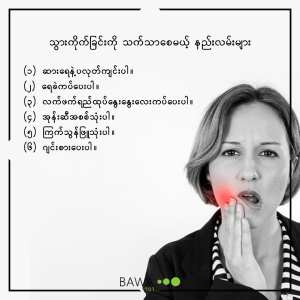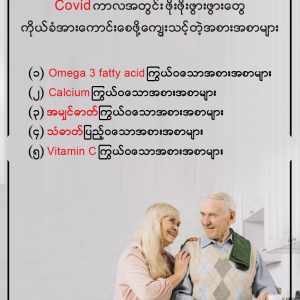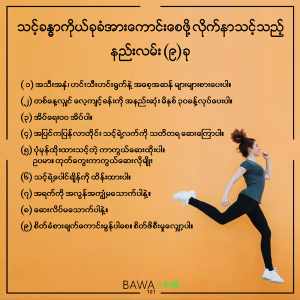Good things to know about B vitamins
"Foods containing vitamin B1 are... beef Liver milk, seeds Oatmeal Orange, Pork All kinds of eggs Be...
"Foods containing vitamin B1 are...
beef Liver milk, seeds Oatmeal Orange, Pork All kinds of eggs Beans Potatoes
etc. are included. rice Pasteur bread Also included in Quaker.
Thiamine is used in the treatment of heart disease. Metabolic problems aging It is useful for treating diseases such as vision. According to a study by the Vietnamese American Medical Research Foundation, thiamine improves the nervous system of people with enzyme disorders. Thiamine is also an important vitamin for the overall brain function.
According to UMM, thiamine is also known as a stress-reducing vitamin. According to research, B vitamins can strengthen the immune system, improve the body's ability to function, improve mood control, and reduce emotional discomfort caused by stress.
Thiamine is not only useful for improving mood, but also for memory loss, ability to learn able to fight stress; It is also useful for things like increasing energy.
U.S. According to the National Library of Medicine, men (ages 14 and older need 1.2 mg per day. Women ages 14 to 18 years need 1.0 mg per day, and ages 19 and older need 1.1 mg. Pregnant and lactating mothers need more.
You can get B vitamins from healthy foods you eat every day.
Vitamin B deficiency
B deficiency affects the nervous system, the brain muscle Heart and gastrointestinal system problems may occur.
A disease called beriberi can occur in children due to lack of B in breastfeeding mothers. Beriberi disease is an abnormality of the nervous system; heart damage Leg weakness may occur. It can harm life.
The symptoms of B deficiency are...
nerve and muscle Gastrointestinal problems often show up. According to the Journal of Congestive Heart Failure, depression; abnormal emotional feelings; Conducting abnormal behaviors; fearlessness weakness Fatigue easily Insomnia forgetting Insensitive pain Constipation Symptoms such as vomiting may also occur.
https://www.livescience.com/51721-vitamin-b1-thiamine.html link is translated.
beef Liver milk, seeds Oatmeal Orange, Pork All kinds of eggs Beans Potatoes
etc. are included. rice Pasteur bread Also included in Quaker.
Thiamine is used in the treatment of heart disease. Metabolic problems aging It is useful for treating diseases such as vision. According to a study by the Vietnamese American Medical Research Foundation, thiamine improves the nervous system of people with enzyme disorders. Thiamine is also an important vitamin for the overall brain function.
According to UMM, thiamine is also known as a stress-reducing vitamin. According to research, B vitamins can strengthen the immune system, improve the body's ability to function, improve mood control, and reduce emotional discomfort caused by stress.
Thiamine is not only useful for improving mood, but also for memory loss, ability to learn able to fight stress; It is also useful for things like increasing energy.
U.S. According to the National Library of Medicine, men (ages 14 and older need 1.2 mg per day. Women ages 14 to 18 years need 1.0 mg per day, and ages 19 and older need 1.1 mg. Pregnant and lactating mothers need more.
You can get B vitamins from healthy foods you eat every day.
Vitamin B deficiency
B deficiency affects the nervous system, the brain muscle Heart and gastrointestinal system problems may occur.
A disease called beriberi can occur in children due to lack of B in breastfeeding mothers. Beriberi disease is an abnormality of the nervous system; heart damage Leg weakness may occur. It can harm life.
The symptoms of B deficiency are...
nerve and muscle Gastrointestinal problems often show up. According to the Journal of Congestive Heart Failure, depression; abnormal emotional feelings; Conducting abnormal behaviors; fearlessness weakness Fatigue easily Insomnia forgetting Insensitive pain Constipation Symptoms such as vomiting may also occur.
https://www.livescience.com/51721-vitamin-b1-thiamine.html link is translated.





